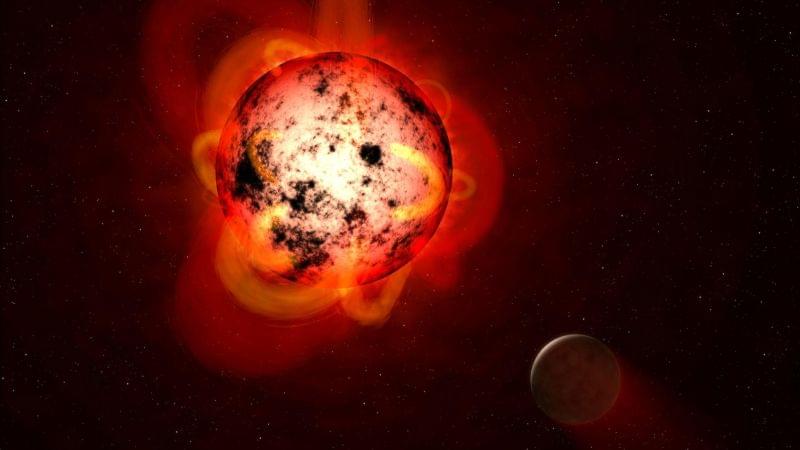The hunt for planets that could harbor life may have just narrowed dramatically.
Scientists had long hoped and theorized that the most common type of star in our universe — called an M dwarf — could host nearby planets with atmospheres, potentially rich with carbon and perfect for the creation of life. But in a new study of a world orbiting an M dwarf 66 light-years from Earth, researchers found no indication such a planet could hold onto an atmosphere at all.
Without a carbon-rich atmosphere, it’s unlikely a planet would be hospitable to living things. Carbon molecules are, after all, considered the building blocks of life. And the findings don’t bode well for other types of planets orbiting M dwarfs, said study coauthor Michelle Hill, a planetary scientist and a doctoral candidate at the University of California, Riverside.
